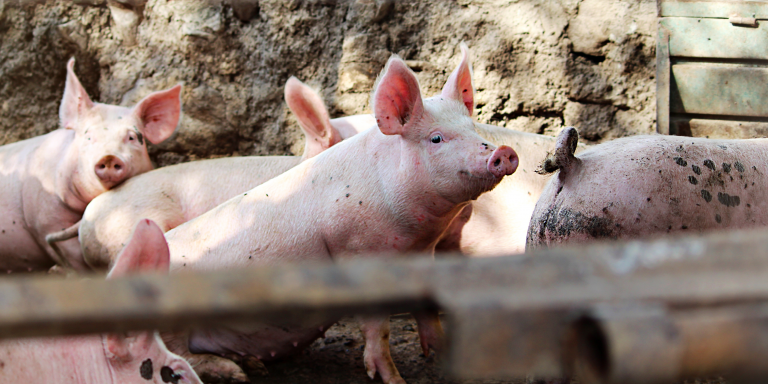
Like all animals, pigs are sensitive, intelligent and capable of feeling emotions such as fear and pain as well as pleasure and happiness. They transmit these emotions through vocalizations, and being able to recognize emotions through vocalizations could allow breeders to improve their well-being. That’s why a team of researchers from INRAE, the University of Copenhagen, and the Swiss Federal Institute of Technology (ETH) in Zurich sought to translate pig grunts. The results of their study entitled ” Classification of pig cries produced from birth to slaughter according to their emotional valence and production context” was published on March 7 in Scientific Reports.
The researchers developed an algorithm to recognize and distinguish between pig vocalizations, the emotions they convey and the situation that generated them, in order to assist farmers in their decision-making.
A collection of 7,400 vocalizations
7,414 vocalizations of 411 pigs from five European laboratories were analyzed. These sounds were recorded in 19 different situations: from the birth of the pigs and throughout their life, in different types of indoor rearing (on slatted floors, on straw…) and in slaughterhouses.
These contexts can be sources of positive emotions (suckling, reunion with fellow pigs…) or negative ones (fights, isolation, castration, slaughter). By combining the expertise of ethologists, bioacousticians for the fine analysis of the acoustic structure of the recorded vocalizations (more or less high frequency, purity of the sound…) and artificial intelligence methods, the researchers worked on the automatic classification of the vocalizations according to the emotional valence (negative or positive emotion) and the situation in which they were emitted, in view of an eventual action of the breeder. Professor Elodie Briefer of the Department of Biology at the University of Copenhagen, who co-led the study, said:
” There are clear differences in pig calls when looking at positive and negative situations. In positive situations, the calls are much shorter, with minor fluctuations in amplitude. Grunts, specifically, start high and gradually decrease in frequency. By training an algorithm to recognize these sounds, we can classify 92% of calls to the correct emotion. “
Artificial Intelligence for animal welfare
The results of the study show that artificial intelligence is very good at recognizing not only the emotions expressed by the vocalizations (91.5% accuracy), but also the context in which they were emitted (82% accuracy). When receiving a new sound, the system will automatically compare it with the sounds already classified before, to qualify it.
While research in animal welfare has focused mainly on the physical health of the animal, although it is now recognized that mental health plays an equally important role, this study should allow farmers to improve the well-being of their animals. Elodie Briefer states:
” With this study, we demonstrate that animal sounds provide excellent insight into their emotions. We also prove that an algorithm can be used to decode and understand pig emotions, which is an important step towards improving animal welfare for livestock. “
She adds:
” We have trained the algorithm to decode pig grunts. Now we need someone who wants to develop the algorithm into an application that farmers can use to improve the welfare of their animals. “
Article sources:
Elodie F. Briefer, Ciara C.-R. Sypherd, Pavel Linhart, Lisette M.C. Leliveld, Monica Padilla de la Torre, Eva R. Read, Carole Guérin, Véronique Deiss, Chloé Monestier, Jeppe H. Rasmussen, Marek Špinka, Sandra Düpjan, Alain Boissy, Andrew M. Janczak, Edna Hillmann, Céline Tallet, Classification of pig calls produced from birth to slaughter according to their emotional valence and context of production, Scientific Reports, DOI: 10.1038/s41598-022-07174-8.
Translated from Bien-être animal : Des chercheurs ont développé un algorithme qui traduit les vocalisations des porcs









